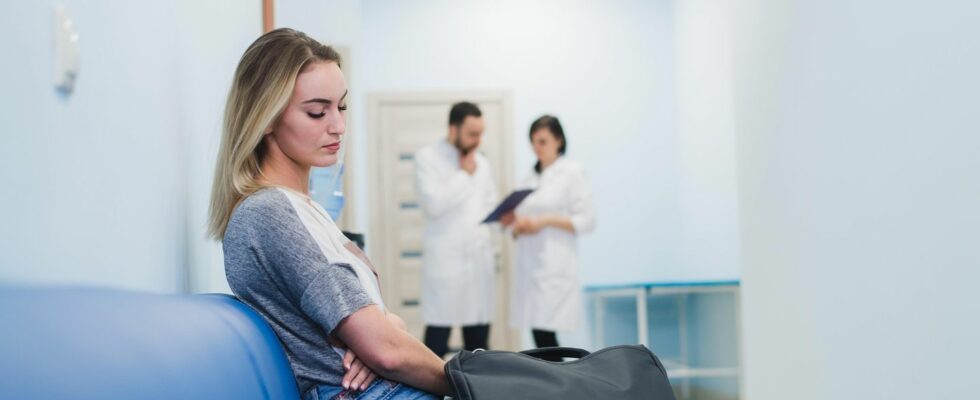Open your mouth!
7 “Embarrassing” Illnesses We Should Talk About!
© Roman Kosolapov / Shutterstock
Unpleasant and seemingly embarrassing illnesses can stop us from going to the doctor – but they shouldn’t! You should be aware of these complaints and have them treated.
Oh God, how embarrassing!
Some of these illnesses are not just unpleasant, but can have serious consequences. For example, an abscess on the buttocks can develop into an anal fistula. This is a duct in the anal area that is often filled with pus, which, in the worst case, damages the sphincter – which can cause the patient to become stool incontinent.
Embarrassing diseases we need to talk about
A tip in advance: Maybe it will help the thought that the doctor has usually seen everything before and can look at your complaints with sober objectivity. Under no circumstances should you keep these illnesses secret:
1. Flatulence
If there is too much air in the stomach, for example due to gassy foods, too much stress or eating too quickly, it escapes in the form of flatulence. However, it usually helps to eat a more balanced diet (lots of fiber, fruit and vegetables, dairy products, fish and a little meat), chew well and take your time with it. If the symptoms persist, a doctor should look for possible organic causes.
2. Athlete’s foot
With athlete’s foot, the skin on the feet becomes red, flaky and tight. The corresponding germs are z. B. transmitted by walking barefoot in the swimming pool. A fungus-killing agent takes care of the athlete’s foot, but this can take several weeks. Until then, good hygiene is important: wear cotton socks and wash them at 60 degrees.
3. Vaginal thrush
For many women, it is probably even more unpleasant than athlete’s foot: with vaginal fungus, the vagina and pubic area itch and burn, and in general the intimate area is often swollen and reddish in color. Some women suffer from whitish, crumbly discharge. The fungi that cause the infection can be treated with vaginal suppositories and special ointments.
4. Hemorrhoids
Hemorrhoids cause itching and pain in the anus, and sometimes slight bleeding. The vascular cushions arise, for example, from constipation and hard stools. Mild symptoms can often be managed with a healthy diet, enough water and exercise. If the pain does not subside, the doctor should rule out other illnesses. By the way, we’ll tell you home remedies for hemorrhoids here.
5. Erectile dysfunction
If the man does not get an erection or cannot maintain it in more than two thirds of all cases, this is referred to as erectile dysfunction. Physical triggers such as: B. arteriosclerosis is responsible. In many cases, medication that the doctor can prescribe can help.
6. Bladder weakness
Depending on the severity of the bladder weaknessWomen lose urine, for example when sneezing, coughing or running. Triggers can be, for example, a misalignment of the uterus or excessive strain on the pelvic floor due to pregnancy. Pelvic floor training can help here.
7. Head lice
Only when the lice infestation is severe does the scalp begin to itch. The eggs laid by the lice (nits) can be seen with the naked eye. Transmission often occurs from person to person. Special shampoos and lice combs help against lice – the treatment should be repeated after eight to ten days. Bedding, laundry, etc. should be washed at at least 60 degrees to remove lice.

